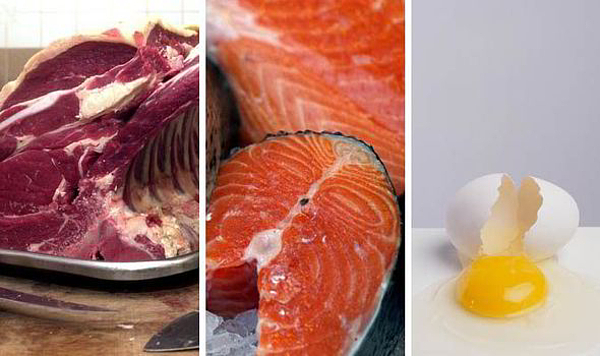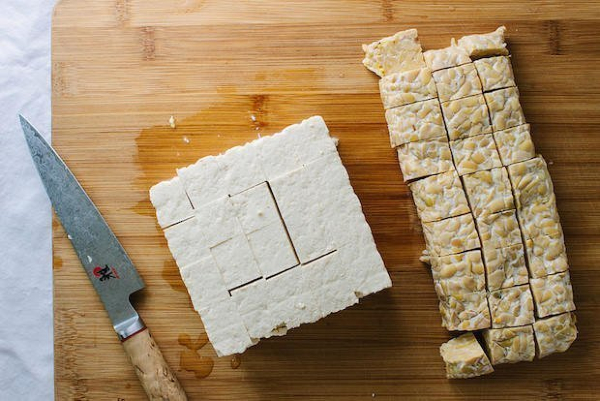1) Grains
- Rice, noodles, pasta, cereals such as oats, bran flakes, and barley
- Wholegrain or plain crackers as snacks
PropertyGuru Tip
Heat, air and moisture are the enemies of grains (Malaysian weather, we’re looking at you), so store all of these in airtight containers, with tight-fitting lids or closures.
2) Fruits
- Dried fruits such as dates, raisins, and apricots
- Fruits with a longer shelf life such as lemons, apples, pears, guavas, and oranges
PropertyGuru Tip
Keep apples away from other fruits, preferably in a plastic bag in the fridge. They produce ethylene gas when ripening, which will make make the others ripen more quickly!
3) Vegetables
- Frozen vegetables
- Vegetables with longer shelf life such as cabbages, cauliflowers, broccoli, carrots, cucumbers, and beans
PropertyGuru Tip
Line your vegetable drawer in the fridge with a few sheets of kitchen roll; it absorbs the condensation that the veggies generate as they chill, thus allowing them to stay drier and fresher for longer.
- Leafy vegetables (but only buy three to five days’ worth of stock)
- Starchy root vegetables such as pumpkin, turnip, sweet potato, potato, tapioca and yam
PropertyGuru Tip
Wrap celery in a sheet of aluminium foil; it lets the gas that spoils your celery escape, rather than trapping it, so the stalks stay fresh and crisp.
4) Dairy products
- Powdered milk, UHT milk, cheese and yogurt (check the expiration date before purchasing)
PropertyGuru Tip
These must be stored within the refrigerator itself, at temperatures of 2°C to 4°C, and never at the door. It’s the warmest area of the fridge, and most prone to temperature fluctuations!
5) Protein sources
- Meat, poultry, fish and seafood (can be stored in the freezer for up to three months after cleaning well)
- Ikan bilis (soak well before cooking to reduce sodium level)
- Canned proteins in water such as tuna in water
- Eggs (A good, easy source of protein, but do not overstock as they will not last too long. Store in the refrigerator to maintain freshness for a longer period of time)
PropertyGuru Tip
Raw meat, poultry and fish should be stored in the following top-to-bottom order in the refrigerator: whole fish, whole cuts of beef and pork, ground meats and fish, and whole and ground poultry.
6) Tofu and tempeh
- Consume these during the first week as they will not last longer than a week
- Legumes and lentils
- Red beans, green beans, dhal, chickpeas and hummus
PropertyGuru Tip
Tofu should be kept in (preferably filtered) water, and stored in a tightly sealed container, covered with plastic wrap. Change the water daily to keep it moist and fresh. Tempeh will need to be stored in the freezer if you aren’t going to eat it immediately, where it can stay fresh for about three months.
- Wear your face mask at ALL times.
- Carry a small bottle of hand sanitiser (with a content of at least 60% alcohol) with you. This is because alcohol is effective at killing different types of microbes, including both viruses and bacteria, and 60% is the recommended amount.
- If you ever need to touch anything, such as the handles/poles on public transportation or the trolleys and baskets at the supermarket, sanitise your hands immediately after!
PropertyGuru Tip
Use the non-dominant hand (i.e. your left hand if you are right-handed, and vice versa) for doorknobs, transport, bathrooms, etc. because you’re less likely to touch your face with that hand.
- Similarly, when you reach home and before you touch the front door’s handle, sanitise first. Then when you’re inside, wash your hands with soap and water (scrub them for at least 20 seconds), take off your face mask to dispose of it, then wash your hands again.
- Change out of your clothes so that you can put them to wash immediately. Then, take a nice long shower to reward yourself for surviving the apocalyptic outdoors.
- Finally, make sure you disinfect all the products which went out of the house with you too: groceries, handphone, wallet/purse, car and house keys, door handle, as well as the locks.
- Make sure you avoid touching your face at all costs when you’re outside, especially the areas around your eyes, nose, and mouth. However, if you desperately NEED to scratch that itch, sanitise your hands first, and use the inner part of your shirt to rub the area.
If you find yourself starting to go a little crazy with being all cooped up in the house, don’t give in to the madness! Have a read on 6 Useful Work From Home Tips to Stay Sane for ideas to get through these trying times.










